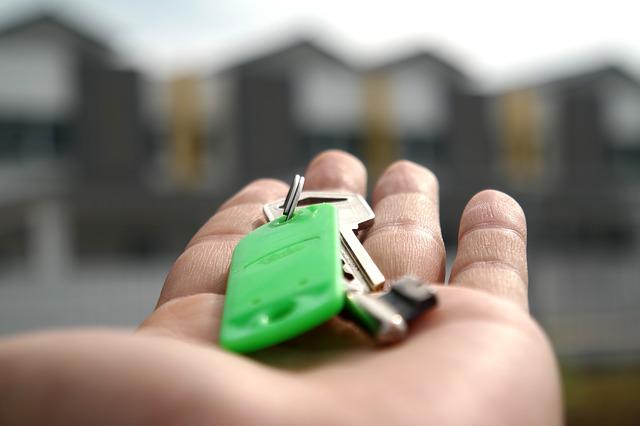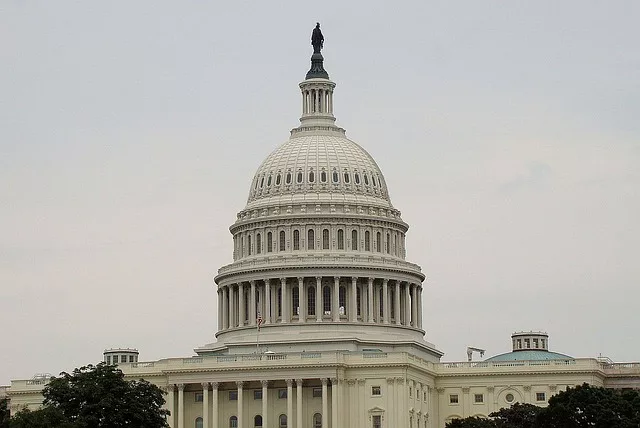VA Loans vs. FHA Mortgages: Which Is Better?

Which is better, an FHA mortgage or a VA home loan? Some may be confused by this article’s headline. If you have access to a no-money-down VA mortgage with no mortgage insurance requirement, why would you consider an FHA mortgage loan instead? FHA loans, after all, have down payments and mortgage insurance requirements. VA home loans typically require neither, though in some cases a borrower may want to consider a down payment to get the benefit of a lower VA loan funding fee.
There are a few good reasons to compare VA and FHA mortgages side-by-side. One is to get an idea of the similarities and differences of the two programs, but another good reason is to know your options if, for some reason (see below) you aren’t able to use your VA loan benefits, or want to save them for another time.
Reasons to Consider an FHA Mortgage
There are a few reasons why some veterans and even currently serving military members might look to an FHA mortgage instead of trying to use their VA home loan benefits. The ability to get a zero-down loan is an important one and some wish to hold that option until they find their “forever home.”
>> Interested in a VA home loan? You may be eligible for no PMI and possibly zero down payment. For a no-obligation, free consultation regarding your VA Loan eligibility, please go here.
Some Might Not Qualify for a VA Loan as Soon as Others
Basic eligibility for a VA loan is an important part of the discussion. Some join the military already interested in owning a home, and if a family was in the process of house hunting before VA loan eligibility is established, it may be necessary to find a different low-down-payment mortgage instead.
What some readers are thinking here? “Why on earth would you join the military in the middle of buying a house? Won’t you just get reassigned somewhere else and have to leave your new home empty?”
The answer to that question would be more of a “yes”, but it leaves out members of the National Guard and Reservists.
When these people become eligible for their VA home loan benefit, it may come after a longer waiting period than those on active duty. So there are situations where people in uniform simply don’t have the ability to wait out that time-in-service commitment and need to purchase a home. Enter the FHA loan program as one option.
Another reason some potential VA loan borrowers might choose an FHA mortgage? They have already used their current VA loan entitlement but have not paid off the loan in full or sold the home. Those who want to purchase a primary residence in such cases may do well to consider the FHA loan option because VA and FHA mortgages have a few traits in common, as we’ll discuss below.
VA Loans and FHA Mortgages: Similarities
VA and FHA mortgages are both government-backed home loans, which means the government is offering a guarantee to the lender to pay a portion of the home loan off if the borrower defaults on the mortgage. That means less risk for the lender and the ability to offer more forgiving credit qualifying requirements for the mortgage.
Both VA and FHA loans feature no penalty for early payoff of the mortgage. VA and FHA home loans offer the ability to refinance later with no VA or FHA required a credit check or appraisal into what’s known as a Streamline Refinance. These refi loans offer no cash back to the borrower but do typically result in a benefit to the borrower such as a lower interest rate, the ability to get out of an adjustable-rate mortgage into a fixed-rate loan, and/or lower monthly payments.
VA and FHA loans for purchases typically feature no cash back to the borrower except in the form of a refund for things paid for up front but later financed into the loan.
Both VA and FHA mortgages also feature an escape clause that allows the borrower to walk away from the mortgage with no penalty if the appraised value of the property is lower than the asking price.
FHA mortgages and VA loans both are guided not by VA and FHA loan guidelines, but also by state law, lender standards, and changes in federal law. When it comes to lender standards, there are some things your lender cannot do with a VA or FHA mortgage.
One of those is to charge the borrower for the lender’s operating costs like hiring an attorney (for the lender to use). Your lender cannot charge you excessive fees that aren’t considered “reasonable and customary” for that housing market.
Get a free, no-obligation consultation regarding your VA Loan!
VA Mortgages Versus FHA Home Loans: Differences
FHA loans differ from VA mortgages in many ways. The first of those differences? Credit score requirements. VA loans have no government-specified FICO score standards and it will be up to the lender to set those.
FHA mortgages have an FHA minimum FICO score range for the lowest down payment. FICO scores at 580 or better technically qualify for a 3.5% downpayment. Those with FICO scores between 500 and 579 technically qualify for an FHA mortgage but with a 10% down payment.
Lender standards will also apply, FICO score requirements may be higher depending on the lender.
Down Payments
Then there is the down payment requirement. FHA mortgages require a minimum borrower investment of 3.5% whereas VA mortgages have no down payment requirement in typical cases. There are exceptions for situations where the purchase price exceeds the appraised value of the home.Mortgage Insurance
FHA mortgages differ from VA loans when it comes to mortgage insurance. There is no VA requirement for mortgage insurance premiums on VA home loans, but FHA mortgages will require you to pay an Up Front Mortgage Insurance Premium and a monthly payment that’s part of your mortgage. This is paid for either 11 years or the lifetime of the loan depending on your loan term and other variables.
VA mortgages allow seller concessions to help the borrower pay for closing costs, but those concessions are capped at an amount lower than the FHA.
Which Is Better, VA Mortgages or FHA Home Loans?
It’s not hard to spot the advantages of a VA mortgage over an FHA home loan. The zero-down payment option alone makes the VA loan program an important benefit. The lack of mortgage insurance is another factor. The fact that you can get a VA mortgage without a down payment OR an up-front mortgage insurance premium to deal with makes it the best option if it is available to you.
But if you don’t yet qualify or don’t want to use your VA loan benefits just yet, the FHA home loan option may be worth exploring. In general, you’ll find articles from government sources such as the Consumer Financial Protection Bureau that encourage borrowers to explore both government-backed home loans and conventional mortgages because borrowers with higher credit scores may find conventional loans easier to qualify for and more affordable overall.
But there are trade-offs. With a conventional loan, you will deal with both a down payment and a mortgage insurance requirement if your down payment is lower than 20%. The loan may cost less overall but you may wind up paying more up front. And FHA loans provide an advantage in those upfront costs. If your goal is to save more out of pocket and pay less monthly, the FHA option may be worth exploring as a VA mortgage loan alternative.
You can talk to a participating VA and/or FHA lender (some offer both) to get side-by-side comparisons of loan options, terms, conditions, and costs. You’ll want to decide what your loan priorities are; do you want to save more out of pocket at the front end of the mortgage or do you want to save money over the entire term of the loan?
Those are important choices to make and will definitely have an effect on your decision-making. VA home loans and FHA mortgages are both important government programs but your specific circumstances will dictate which one winds up being best for you.
Get a free, no-obligation consultation regarding your VA Loan!
RELATED:
- VA Loan Basics
- Getting Started with VA Loan Benefits
- VA Loan Rules for Mortgage Approval: Employment and Income
- Considerations For Using Your VA Loan Benefits as a Veteran
- What You Need to Know About VA Loan Closing Costs
- VA Loan Limits
About the author
Editor-in-Chief Joe Wallace is a 13-year veteran of the United States Air Force and a former reporter/editor for Air Force Television News and the Pentagon Channel. His freelance work includes contract work for Motorola, VALoans.com, and Credit Karma. He is co-founder of Dim Art House in Springfield, Illinois, and spends his non-writing time as an abstract painter, independent publisher, and occasional filmmaker.



